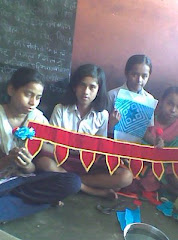Book review
Title: Rishabhayan: The Story of the First King
Author: Acharya Mahapragya
Translator: Sudhamahi Regunathan
Harper Element: An imprint of HarperCollins Publishers
Rishabhayan: The Story of the First King is a rare book of its kind. Written by Acharaya Mahapragya, a respected Jain monk and scholar, it tells the story of Rishabha, the first King and its very first Tirthankara, and through it introduces the basic concepts of Jainism. The commentary provided by Sudhamahi Regunathan, former Vice Chancellor, of the Jain Vishwa Bharati University, who has also translated the work from Hindi to English, makes it an immensely readable book. Sudhamahi Regunathan puts the concepts into context to help the lay reader, or a student of religion and theology unravel the throes of the past and discover the gems Jainism has to offer.
How did the story of human life begin and progress? What was society like before what we term ‘civilisation’? How did punishment evolve? When did the concept of family take root? These are just some of the questions that the book answers, all in about 2000 very beautifully crafted verses.
Rishaba’s story is set almost 2500 years before Christ. Consider that Mahavira, the 24th Tirthankara, was in the sixth century BC. A Tirthankara is a person who attains a state of enlightenment through meditation and conquers the cycle of death and rebirth. It is with the birth of Rishaba that society began to be organised, or put it in the Acharya’s words, it was the beginning of Indian civilisation.
The book is a mine of wisdom. You get introduced to the pillars of Jain thought -- non violence, non absolutism and non possession. You learn about anekanta or relativity that states truth is multi-dimensional, and forms the foundation of Jain philosophy.
The verses deal with administration and governance of society. The Acharya writes that the underlying principle of governance is equality of all living beings. A healthy society is one in which there is no shortage of wealth and materials, and yet their influence on people is also not overbearing.
Punishment was the first tool of administration. Initially remorse was enough to control people. Soon they grew thick skinned and direct admonishment had to be used. But crime could not be contained by admonishment for too long and then the third tool – reprimand came into effect, the Acharya explains.
Or sample this, in the Acharya’s elegant style: One should eat food as a bee draws nectar from a flower without harming it or as a cow grazes on the grass without uprooting it. It is only the donkey that uproots the entire plant!
Or this on longevity –
Lack of anger, lack of greed,
Mental peace, positive outlook, and
Balanced nutrition, these five potent
influences ensured longevity
The causes of a short lifespan are five:
Fear stress, passions high,
Imbalanced food and collective effect
Of all negative emotions and thoughts
The Acharya should know. He lived till 89 years and passed away recently.
Sudhamahi writes that translation has been challenging as she had to find synonyms for the philosophical terms and accommodate the adages and proverbs common in Hindi, Rajasthani and Sanskrit into a culturally different language. But she has done so with an elan matching the Acharya’s elegant style and the result is a treasure house capturing the journey of human society.
If you are fond of contemplating on life, or a poet, or a student of religion, the book is recommended for you.
--------

.jpg)





+(2).jpg)

